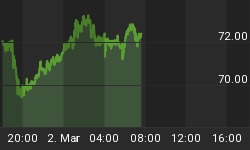Defying threats from Washington, the UK, France and Germany have executed their plan to set up a special-payments mechanism with Iran and skirt U.S. sanctions.
The three EU nations, all signatories to the 2015 nuclear deal, have been working for months to establish a special purpose vehicle they have dubbed INSTEX (Instrument in Support of Trade Exchanges), which will facilitate movement of goods between Europe and Iran.
The move is likely to displease Washington after president Trump pulled the country out of the landmark nuclear deal in May and warned countries against doing business with Iran. The US State Department has said that it’s "closely following" the developments.
Set to Struggle
In the short term, the countries have said that the INSTEX channel will be used for humanitarian trade to sell only food, medicine and medical equipment to Iran with a possibility of expanded trade in the future.
Iran has been rocked by a severe shortage of food and vital drugs ever since Washington reinstituted sanctions against it last year leading to the collapse of the Iranian rial. According to German broadcaster NDR, INSTEX will be based in Paris and is expected to receive the endorsement of all 28 EU member states.
Though being fashioned mainly as a humanitarian vehicle, setting up INSTEX is ultimately self-serving and meant to protect European security interests. The nations hope that by facilitating the importation of food and medicine to Iran, the country will be more inclined to stick to its end of the 2015 deal to abandon its uranium enrichment program.
Because—for once—it’s about money; it’s about saving the nuclear deal because no one wants an Iran that is primed to relaunch a major nuclear program. Related: Russia Denies Nuclear Deal With North Korea
Indeed, they have admitted as much, "…we have been looking for ways to obtain this agreement because we are firmly convinced that it serves our strategic security interests in Europe," admitted German Foreign Minister Heiko Maas during a press briefing in Brussels.
According to another European Union source: "We hope they sort it out and don't shoot themselves in the foot. If I were Iran I would look around and see that Europe is my best friend in a very volatile world."
INSTEX, however, appears set to struggle to achieve its objective to pacify Tehran by helping it to import food and drugs at affordable prices.
EU-Iran relations have been strained following the latter’s ballistic missile program and attacks against dissidents in Europe. Earlier this month, a meeting between European diplomats and Iranian Deputy Foreign Minister Seyed Abbas Araqchi ended in acrimony with Iranian news agency Entekhab reporting that Araqchi shrugged off European complaints about plots against Iranian dissidents. Related: Maduro To Sell Gold To UAE To Stay Solvent
There seems to be no shortage of bad blood between the two sides. Prior to the announcement of INSTEX, the Iranian hierarchy expressed doubts regarding whether European would deliver on its JCPOA [Joint Comprehensive Plan] pledges and of ease the pain caused by U.S. sanctions. Ahmad Jannati, Chairman of the Guardian Council, told CNN that: "…being hopeful that the Europeans will abide by their JCPOA obligations is stupidity. They are dragging their feet and will never do anything in our favor."
Then of course there are questions whether European companies will be willing to risk getting in Washington’s bad books by taking up INSTEX. Last month, a senior State Department official warned: "If you are the CEO of a European company and you are given the choice between doing business in the United States market or the Iranian market, that is the fastest decision you will ever make as CEO."
Sticking to the Deal
Although there’s no guarantee that INSTEX will solve the impasse between Europe and Iran, there are still plenty of other reasons why Iran will want to abide by the nuclear deal.
President Trump has already threatened to reduce Iranian oil exports to zero, and in increasing global supplies give him more leverage to do so. Despite the sanctions, Iran still exports more than a million barrels per day mainly to Japan, Turkey and South Korea. If the country was to renege on its JCPOA pledges, many of these countries would stop buying its oil.
By Alex Kimani for Safehaven.com
More Top Reads From Safehaven.com:

















